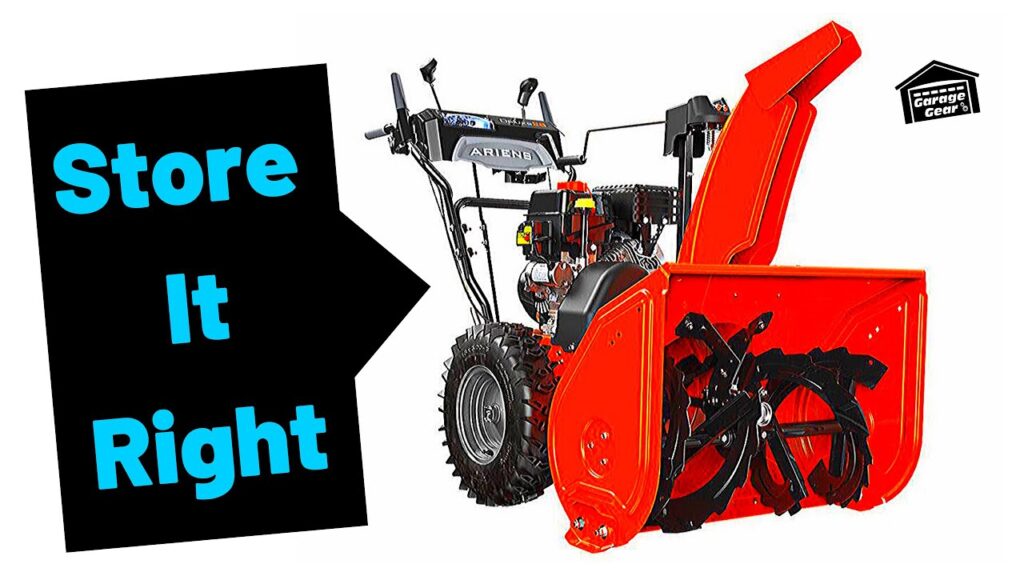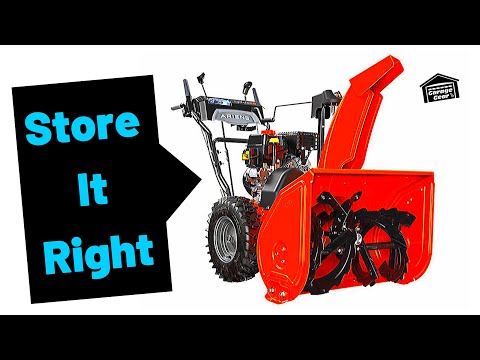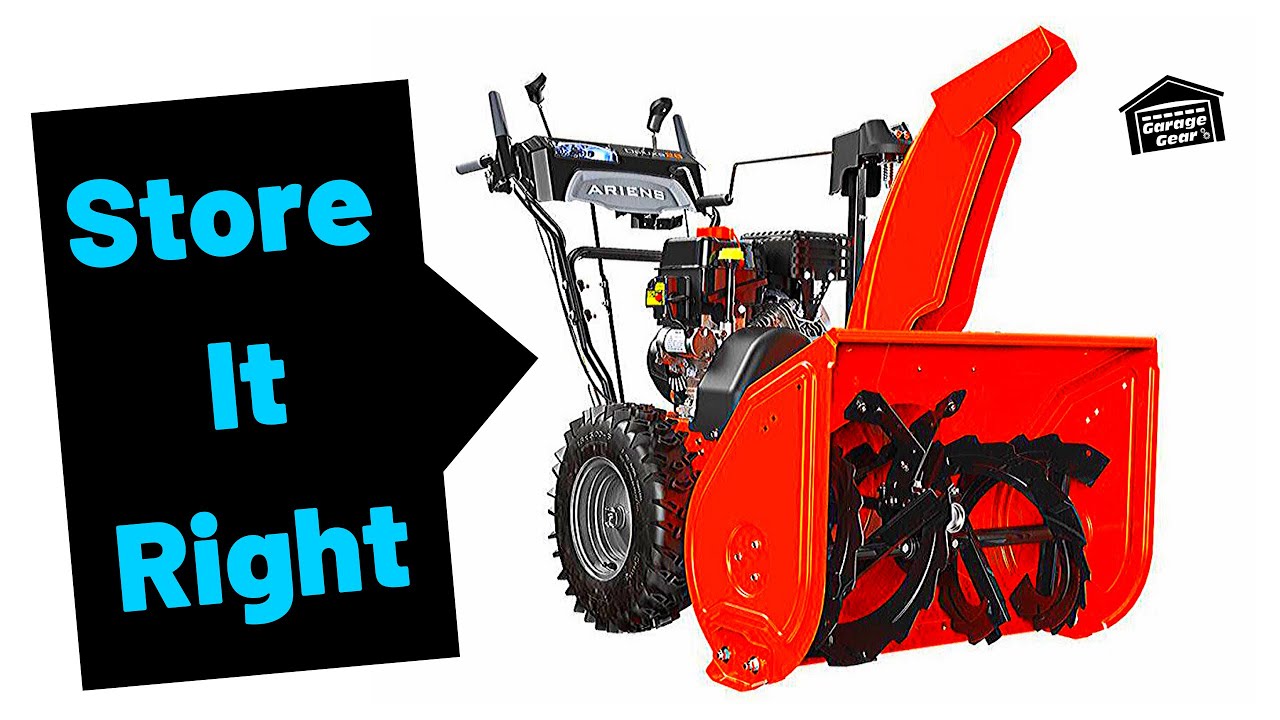Have you ever wondered what type of gas is best to use in your snowblower? We’ve got the answer for you! In this article, we’ll break down the pros and cons of using regular and premium gas in your snowblower. We’ll discuss the impact it can have on performance, maintenance, and overall lifespan. By the end, you’ll have a clear understanding of whether regular or premium gas is the right choice for your snowblower.
Curious to know why the type of gas you use in your snowblower matters? Want to make sure you’re getting the most out of your machine? Look no further! In this article, we’ll explore the differences between regular and premium gas and how it can impact your snowblower’s efficiency. We’ll also provide some helpful tips for maintaining your snowblower to ensure it runs smoothly all winter long. So sit back, grab a cup of hot cocoa, and let’s dive into the world of snowblower gas!

This image is property of i.ytimg.com.
Understanding the difference between regular and premium gas
When it comes to fueling your snowblower, it’s important to understand the difference between regular and premium gas. Regular gas typically has an octane rating of around 87, while premium gas has a higher octane rating, usually around 91 or 93. This octane rating refers to the fuel’s ability to resist “knocking,” which can occur when the air-fuel mixture in the engine ignites at the wrong time.
Octane levels in regular gas
Regular gas is typically recommended for small engines, such as those found in snowblowers. These engines are designed to run on lower octane fuel and do not require the higher octane levels found in premium gas. Using regular gas in a snowblower is perfectly safe and will not negatively impact the engine’s performance.
Octane levels in premium gas
Premium gas, on the other hand, has a higher octane rating. This is beneficial for high-performance engines that require a fuel with greater resistance to knocking. While some snowblowers may have high-performance engines, most consumer-grade models do not necessitate the use of premium gas.
How octane levels affect engine performance
The octane level of the fuel can affect engine performance, but only to a certain extent. If your snowblower engine is designed to run on regular gas, using premium gas will not provide any noticeable improvement in performance. In fact, it may even lead to carbon buildup in the engine, as the higher octane fuel may not burn as cleanly as regular gas.

This image is property of www.rcpw.com.
Price difference between regular and premium gas
One factor to consider when deciding on the type of gas to use in your snowblower is the price difference between regular and premium gas. Premium gas typically costs more per gallon than regular gas, which can add up over time, especially if you frequently use your snowblower during the winter season.
Benefits of using regular gas in a snowblower
While premium gas may have its advantages, there are several benefits to using regular gas in your snowblower.
Compatibility with most snowblower engines
Regular gas is compatible with the majority of snowblower engines on the market. These engines are designed to run on fuel with a lower octane rating, making regular gas the ideal choice for most snowblower owners.
Cost-effective option
Regular gas is generally more affordable than premium gas. If you are on a budget or want to save some money, using regular gas in your snowblower can help cut down on fuel expenses without compromising performance.
Availability and convenience
Regular gas is widely available at gas stations and convenience stores. You won’t have to go out of your way to find a station that sells premium gas, which can be particularly beneficial if you live in a rural area with limited access to gas stations.
Suitability for moderate use or casual snow clearing
If you only use your snowblower occasionally or for light snow clearing, regular gas is more than sufficient. There is no need to invest in premium gas if you are not putting your snowblower through heavy-duty or professional use.

This image is property of i.ytimg.com.
Benefits of using premium gas in a snowblower
While regular gas is the recommended choice for most snowblower owners, there are situations where using premium gas can be beneficial.
Enhanced engine performance and efficiency
Premium gas, with its higher octane rating, can provide a slight boost in engine performance and efficiency. If you have a high-performance snowblower or frequently use your snowblower for extensive snow clearing, premium gas may offer improved power and fuel economy.
Reduced carbon deposits
Premium gas tends to burn cleaner than regular gas, resulting in fewer carbon deposits in the engine. Reduced carbon buildup can help prolong the lifespan of your snowblower and minimize the need for maintenance or repairs.
Preventing engine knocking
Engine knocking can occur when the air-fuel mixture in the engine ignites before it is supposed to. Using a fuel with a higher octane rating, such as premium gas, can reduce the chances of engine knocking. This is particularly beneficial for snowblowers that operate under heavy loads or in extreme weather conditions.
Suitability for heavy-duty or professional use
If you have a commercial-grade snowblower or frequently use your snowblower for professional snow clearing, premium gas may be the ideal choice. These high-performance snowblowers often have engines designed to run on higher-octane fuel, ensuring optimal performance and reliability.
Considerations before choosing the type of gas
Before deciding whether to use regular or premium gas in your snowblower, there are several factors to consider.
Manufacturer’s recommendations
Always refer to the snowblower’s manual or consult the manufacturer’s recommendations regarding the type of gas to use. Following these guidelines will ensure that you are using the correct fuel for your snowblower, maintaining warranty coverage, and maximizing performance.
Climate and weather conditions
Consider the climate and weather conditions in your area. Extreme cold temperatures can affect fuel combustion and can benefit from using a higher octane fuel. Additionally, areas with high humidity or moisture levels may require a fuel with better resistance to moisture-related issues.
Frequency and duration of use
Evaluate how often and for how long you typically use your snowblower. Occasional or infrequent use may not necessitate the use of premium gas, while regular or daily use, especially for extended periods, may benefit from the increased performance and efficiency offered by premium gas.
Budget and cost considerations
Compare the prices of regular and premium gas and factor in the cost difference over time. Also, consider the potential long-term maintenance and repair costs associated with using a fuel that may not be optimal for your snowblower. Balancing your budget and cost considerations with the potential benefits of premium gas is crucial in making an informed decision.

This image is property of www.thespruce.com.
Conclusion
In conclusion, the decision of whether to use regular or premium gas in your snowblower depends on several factors. While regular gas is the recommended choice for most snowblower owners, premium gas can offer enhanced performance and efficiency for heavy-duty or professional use. It’s important to consult the manufacturer’s recommendations, consider the climate and weather conditions, evaluate the frequency and duration of use, and weigh your budget and cost considerations. By making an informed decision based on these factors, you can ensure optimal performance and longevity of your snowblower. So, next time you fuel up your snowblower, consider your individual circumstances and preferences to determine whether regular or premium gas is the right choice for you.
